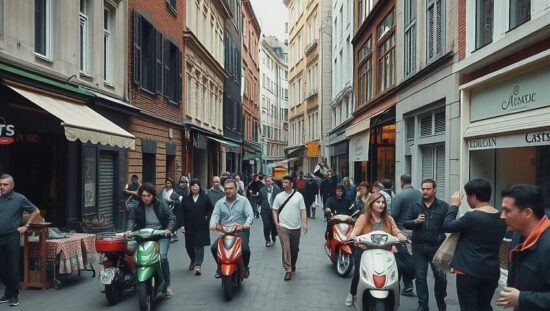The European Commission has levied a collective fine exceeding €157 million against luxury fashion houses Gucci, Chloé and Loewe for engaging in anti-competitive pricing practices, marking a significant blow to the industry’s control over its distribution networks. The Commission announced the penalties on Tuesday, citing violations of EU competition rules related to the restriction of resale prices for their products.
The companies are accused of dictating the pricing of their goods via independent retailers, effectively limiting their flexibility and stifling competition. This practice, according to the Commission, resulted in artificially inflated prices for consumers and reduced product choices. The restrictive practices persisted until April 2023, when the Commission conducted unannounced inspections, revealing the extent of the coordinated efforts.
Fines were calculated considering the severity and duration of the infringements, alongside the degree of cooperation provided by each company during the investigation. Gucci and Loewe received a 50% reduction in their penalties for their collaborative approach, whilst Chloé saw a 15% reduction. This acknowledgement of wrongdoing and subsequent cooperation accelerated the investigative proceedings. Gucci faces the largest fine at €119.7 million, followed by Chloé (€19.7 million) and Loewe (€18.0 million).
The Commission’s action underscores growing scrutiny of the luxury sector’s strategies for maintaining brand image and profitability, often at the expense of independent retailers and consumer choice. “Today, we have sanctioned three European fashion houses for interfering with the pricing of their independent retailers, in violation of EU competition rules” stated EU Commission Vice-President Teresa Ribera. “This decision sends a powerful signal to the fashion industry and beyond: we will not tolerate such practices in Europe and fair competition and consumer protection must apply equally to all.
The case raises critical questions regarding the power exerted by major fashion brands over their distribution channels and potential implications for smaller businesses and online marketplaces that operate within the EU. Industry analysts are predicting a ripple effect, prompting a review of contractual arrangements and pricing models across the luxury goods sector, as companies grapple with the implications of this landmark enforcement action. This ruling will likely fuel wider debate regarding the balance between brand control and fostering a competitive marketplace for both retailers and consumers alike.





